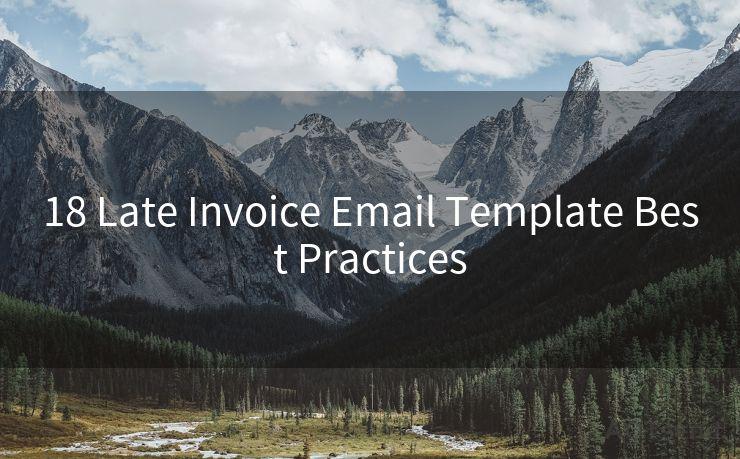18 Late Invoice Email Template Best Practices




When dealing with late invoices, effective communication is key to maintaining a positive relationship with your clients. Here are 18 best practices for crafting a late invoice email template that gets results.
1. Use a Clear and Professional Subject Line
Start with a subject line that clearly communicates the purpose of the email, such as "Reminder: Invoice #[Invoice Number] Past Due Date." This helps the recipient understand the urgency of the matter at a glance.
2. Greet the Client by Name
Personalize the email by addressing the client by their name. This adds a human touch and makes the communication more personal.
3. Express Gratitude for Their Business
Begin the email by thanking the client for their business. This sets a positive tone for the rest of the communication.
4. State the Purpose of the Email Clearly
Get to the point quickly and politely remind the client that the invoice is past its due date. Use specific dates and invoice details to avoid any confusion.
5. Provide a Direct Link to the Invoice
Make it easy for the client to access the invoice by including a direct link in the email. This removes any friction and allows them to quickly resolve the matter.
6. Offer Multiple Payment Options
Include several payment methods to accommodate different client preferences. This flexibility can increase the likelihood of prompt payment.
7. Specify Late Fees or Penalties (If Applicable)
If your company charges late fees or penalties, clearly state this in the email. Transparency is key to maintaining trust with your clients.
8. Request Confirmation of Receipt
Ask the client to confirm receipt of the email and their intention to resolve the invoice. This creates a paper trail and ensures both parties are on the same page.
9. Maintain a Polite and Professional Tone
Keep the language of the email polite and professional, avoiding any accusatory or aggressive wording.
10. Include Contact Information for Queries
Provide your contact information in case the client has any questions or needs assistance with payment.
11. Use a Clear Call to Action
End the email with a clear call to action, urging the client to make payment as soon as possible.
12. Avoid Using Legal Jargon
Keep the language simple and avoid using complex legal terms that may confuse the client.
🔔🔔🔔
【AOTsend Email API】:AOTsend is a Managed Email Service for sending transactional emails. Support Email Types: reminders, authentication, confirmations, notifications, verification codes, invoices, password resets, account activations, billing statements, two-factor authentication (2FA), and one-time passwords (OTP) emails, etc. $0.28 per 1000 Emails. 99% Delivery, 98% Inbox Rate.
You might be interested in:
Why did we start the AOTsend project, Brand Story?
What is a Managed Email API, How it Works?
Best 25+ Email Marketing Platforms (Authority,Keywords&Traffic Comparison)
Best 24+ Email Marketing Service (Price, Pros&Cons Comparison)
Email APIs vs SMTP: How they Works, Any Difference?
13. Follow Up Regularly (But Not Too Frequently)
If payment is not received after the initial email, send follow-up emails at regular intervals, but avoid bombarding the client with too many messages.
14. Update Invoice Status Regularly
If possible, update the invoice status online so clients can easily track their payment progress.
15. Provide Incentives for Prompt Payment
Consider offering discounts or other incentives for prompt payment to encourage clients to settle their invoices quickly.
16. Use Templates, But Customize as Needed
While templates can save time, it's important to customize each email to fit the specific client and situation.
17. Keep Records of Communication
Maintain detailed records of all communication related to late invoices. This can be crucial in case of any disputes.
18. Know Your Client
Understand your client's business cycles and cash flow patterns. This helps you time your invoices and reminders more effectively.
By following these best practices, you can create a late invoice email template that is both effective and respectful of your clients' time. Remember, communication is key in maintaining healthy business relationships, so make sure your emails are clear, concise, and polite.





Scan the QR code to access on your mobile device.
Copyright notice: This article is published by AotSend. Reproduction requires attribution.
Article Link:https://www.mailwot.com/p5935.html



